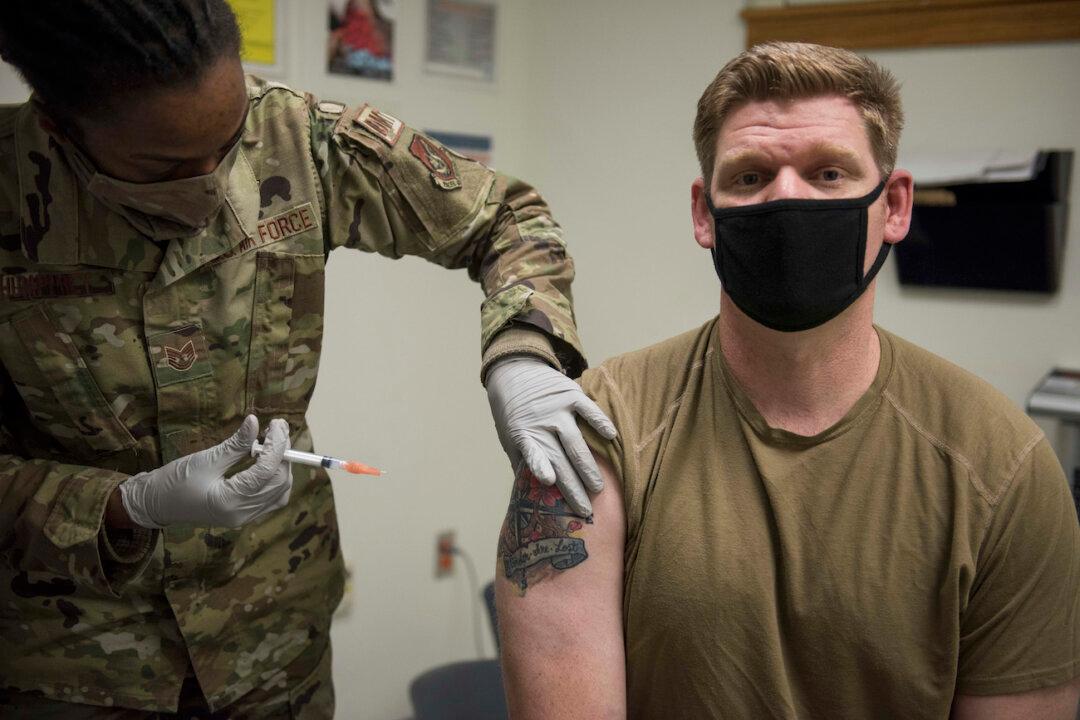Rep. Thomas Massie (R-Ky.) said he was informed by some members of the U.S. military that they would quit if the armed forces mandated a COVID-19 vaccine, coming after a report claimed that Army headquarters told commanders to prepare for mandatory vaccinations in September.
“I’ve been contacted by members of our voluntary military who say they will quit if the COVID vaccine is mandated. I introduced HR 3860 to prohibit any mandatory requirement that a member of the Armed Forces receive a vaccination against COVID-19. It now has 24 sponsors,” Massie wrote on Twitter. He didn’t provide more details.





